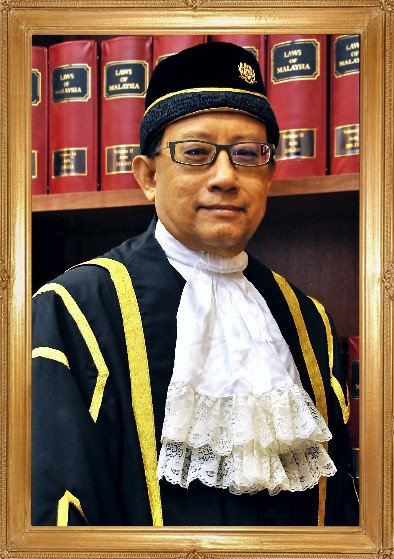Bar: Judge should have disclosed his brother is in Umno

(The Star) – The High Court judge in the criminal proceedings involving former prime minister Datuk Seri Najib Tun Razak should have disclosed the fact that he has a brother with a position in Umno, says the Malaysian Bar president.
It was reported that High Court judge Justice Mohd Sofian Abd Razak, who is presiding over Najib’s abuse of power and criminal breach of trust cases, is the younger brother of Pahang state executive councillor and Benta Umno state assemblyman Datuk Seri Mohd Soffi Abdul Razak.
Mohd Soffi has held the Benta state seat since 1999 and has served as a state exco member since 2004.
He currently chairs the Pahang State Agriculture and Agro-Based Industry Committee.
“The rule of law demands that justice must not only be done but it must manifestly be seen to be done.
“Given that the former prime minister was until recently the president of Umno and chairman of Barisan Nasional, the judge ought to have disclosed his relationship to his brother and the latter’s position in Umno and the Pahang state government to the prosecution and the defence prior to the hearing on Wednesday,” George Varughese said in a statement yesterday.
He added that such a disclosure was necessary to preserve the integrity of the proceedings before the judge and to avoid any real danger of bias.
“The judge’s failure to do so has unfortunately raised serious questions about the propriety of him continuing to preside over the case. The Malaysian Bar is of the view that the interests of justice require the judge to recuse himself from further hearing this case,” Varughese said.
Senior criminal lawyer Kitson Foong told The Star that the issue of “likely bias” has been raised across Malaysian criminal courts from time to time.
He said in 2001, High Court judge Justice Wahab Patail, who presided over a sedition trial, found himself in a similar situation where charges against the accused were sanctioned by the then Attorney General, Tan Sri Gani Patail, his brother.
“In that case, neither the Deputy Public Prosecutor nor the accused raised any preliminary objections to disqualify him (Justice Wahab).
“Yet he took the liberty to address the elephant in the room, whether the public would go away thinking that the judge would be biased in favour of his brother,” Foong said.
Malaysian courts do not require an actual act of biasness to be proven, he added.
“A doubt would suffice as it compromises the public’s confidence in our criminal justice system,” he said.
Foong added that should the prosecution feel there exists any likelihood of bias, it could firstly “take the gentlemanly route” of highlighting this conflict of interest to the judge, either in chambers or in open court.
“Should the said judge feel otherwise, the prosecution could then make an official application to recuse the judge from hearing the trial premised upon Section 439 of the Criminal Procedure Code (CPC),” he said.
Lawyer Mohamed Haniff Khatri Abdulla concurred, saying that parties involved in the proceedings should file a formal application to recuse the judge should they distrust the sanctity of the judge’s position.
He, however, did not agree that the presiding judge’s blood relation with his brother would be detrimental to the hearing.
“On the principle of natural justice, judges presiding over any court proceedings, whether civil or criminal, would only be considered having a conflict of interest if the judge has a direct relation with parties involved before him.
“To me, unless there is a basis that shows otherwise, just because the judge has a blood relation with (someone holding) a position in Pahang and in Umno, that should not be the reason to conclude the judge would have a conflict of interest,” he added.
Mohamed Haniff said given that Umno has about three million members, there are bound to be people related to Umno members, including the judge in this case.

